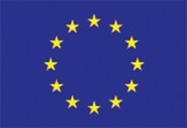April 25, 2025
European Union foreign ministers have sanctioned seven Iranian officials and two prisons they say are linked to a policy of state-sponsored hostage-taking. In recent years, the Pasdaran have arrested dozens of dual nationals and foreigners, mostly on charges related to espionage. Among them are at least 20 European citizens, the EU said April 14.
The Iran Times is aware of 11 four Britons, three French, two Austrians and two Swedes. Seven of them are dual nationals, the other four are a British couple and a French couple. The longest detained is Kamran Ghaderi, an AustrianIranian dual national, who just passed nine years in prison. The EU Foreign Affairs Council imposed the sanctions April 14. The sanctions are not likely to have any impact on those named. The real point is to raise the visibility of the hostage-taking issue and to make clear to the Islamic Republic that the 27-nation EU is getting angrier over the Iranian practice of seizing its nationals to extract concessions.
The new sanctions target two prosecutors, three judges and the heads of Evin Prison and the Fars Prisons Protection and Intelligence Department. Shiraz Central Prison and the First Branch of the Revolutionary Court of Shiraz were the two entities named in the sanctions. (Tehran’s Evin Prison where most foreigners are held, was sanctioned by the EU years ago.) “The European Union continues to be deeply concerned by Iran’s distressing practice of detaining EU mono and dual nationals arbitrarily on spurious grounds, with a view to making political gains,” said the council in a statement.
“Last year, there was a dramatic increase in the number of executions, including of women and individuals belonging to ethnic and religious minorities, as well as of one European citizen.” (That was Jamshid Sharmahd.) The sanctions are three-fold: a freeze on any assets found within the EU; a ban on visas, thus barring the entry of those sanctioned into EU territory; and a prohibition on EU nationals making any funds or economic resources available to those sanctioned.
The EU sanctions parallel those used by the United States. Such restrictive measures by the bloc currently apply to a total of 232 individuals and 44 entities. A ban on exports to Iran of equipment that might be used for internal repression and equipment for monitoring telecommunications has also been put in place, the EU said. France, which has three of its nationals detained in what it has described as conditions akin to torture, has led the efforts to squeeze Iran on the issue. “To free them, we will increase pressure on the Iranian regime,” Foreign Minister Jean-Noel Barrot told lawmakers a week before the EU action. A senior EU diplomat said, “You really have to take action against that policy of just picking people off the streets, throwing them in jail just to get something from some European member states and that’s what we’re doing now.”
As part of the efforts to further pressure Iran, France is preparing a case to file at the International Court of Justice (ICJ) in The Hague against Iran for violating the right to consular protection. In March, the UN Special Rapporteur on Torture and Other Cruel Treatment or Punishment announced that Iran, China, Russia, Myanmar, the United Arab Emirates, Venezuela, and North Korea are detaining foreign nationals “arbitrarily” with the aim of using them as bargaining chips to gain financial or political concessions.
The rapporteur, Alice Jill Edwards, said there have been at least 66 cases of “state hostagetaking” in Iran since 2010 and emphasized that journalists, aid workers, academics, business travelers, and human rights defenders are particularly targeted by state hostage-taking in Iran. Here are the people and institutions sanctioned by the EU and the explanations given for the sanctions: Abbas Ali Hozan, Judge of Branch 36 of the Tehran Provincial Court of Appeal, has been instrumental in upholding sentences against political opponents, women protesting against compulsory hejab, and religious minorities, particularly Baha’is.
Many of these sentences were based on forced confessions obtained under torture. Hedayatollah Farzadi, the warden of Evin Prison, is responsible for restricting the rights of political prisoners, especially communication and visits, and for arbitrary solitary confinement. He is also accused of aggravating the conditions of detention of political prisoners.
Mehdi Nemati, head of prison protection and intelligence in Fars province, is involved in the administration of the Shiraz Central Prison. The prison has been the site of numerous executions, particularly against ethnic and religious minorities, and the illegal detention of European citizens. Kamran Zare, a judge at the Shiraz Court of Appeals, is accused of issuing harsh sentences against political protesters and religious minorities, especially Baha’is. Seyyed Mahmoud Sadati, a judge at the Shiraz Revolutionary Court, has been involved in issuing death sentences, extracting forced confessions, and violating fair trial rights against political activists and minorities.
Ali Salehi, the public prosecutor of Tehran, has been involved in prosecuting women opposed to compulsory hejab, students and protesters, issuing and carrying out death sentences and committing acts of torture. Mohammad Khosravani, the special prosecutor of the Shiraz Revolutionary Court, is accused of exerting pressure, arbitrary detention, and violating the rights of defendants during the repression of political opponents and minorities. Two entities have also been sanctioned: Shiraz Central Prison (Adelabad), for systematic human rights violations, mass executions, and illegal detention of hostages from European countries. Branch 1 of the Shiraz Revolutionary Court, due to issuing unjust sentences, executing opponents, and suppressing religious and ethnic minorities.























